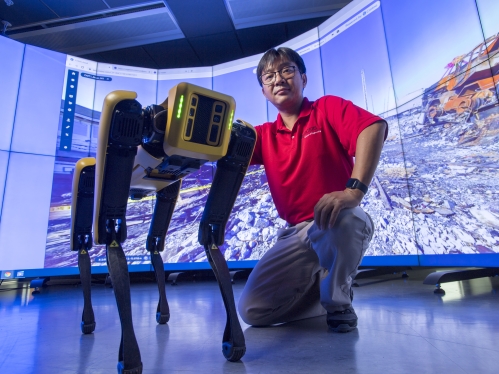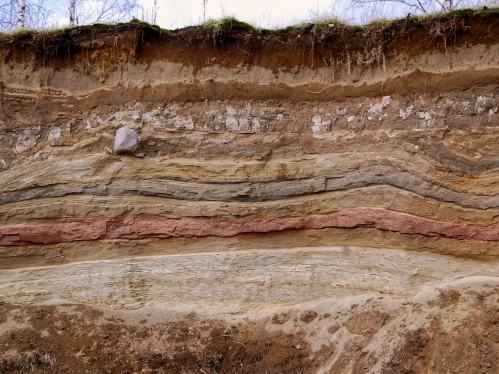
Civil Engineering Undergraduate Program
What is Civil Engineering?
Civil engineers design and create virtually all infrastructure, from bridges and highways to airports and sewage treatment facilities. Within civil engineering, there can a be a wide range of specialization: structural engineers may be involved in designing buildings to withstand earthquakes and hurricanes; transportation engineers may design highways; construction and geotechnical engineers may be involved with creating new towers and tunnels.
Program Overview
To develop the required knowledge and skills, civil engineering students take courses on analysis and design of concrete and steel structures, planning of water supply and waste-water treatment facilities, planning of all modes of transportation systems, analysis and design of foundation systems that support all civil structures, planning and execution of construction projects, and more.
Students are then required to demonstrate their gained knowledge in senior design projects, where they develop designs and plans for real world structures, facilities, and systems.
Academic Options
Students in their senior year have the opportunity to concentrate on a specific interest area:
- Structural Engineering
- Geotechnical Engineering
- Transportation Engineering
- Construction Management
- Water Resources and Environmental Engineering

Beyond Academics
At Rutgers, students tackle issues of global importance, including the sustainability of infrastructures, the impact of transportation on the environment, deploying emerging concepts and technologies in the construction of new facilities, and much more. Our faculty members are leading innovators with recent technological advances that include a robot that examines bridge surfaces using sophisticated tools and a 3-D geospatial mapping instrument.
Students participate in research in advanced laboratories alongside faculty.
We also offer a combined BS/MS degree that includes focused research.

Putting Your Degree to Work
If you look around, civil engineering is everywhere! Civil engineers have a real impact on people's lives. Whether involved in projects underground, on huge structures or meeting the water needs of developing communities, these engineers are making a difference.
Civil engineering is a gratifying field, with a bright job outlook, opportunity for advancement, high salaries and sense of professional fulfillment.
Professional opportunities include: construction engineer, environmental engineer, geotechnical engineer. structural engineer, transportation engineer, and water resources engineer.




Fast Facts
Undergraduate Students
Faculty Members
Research Labs
Meet Marcelo Remond Miyoshi
As a civil engineering major with a minor in urban planning and design, Marcelo Remond Miyoshi is passionate about making safe and accessible for all users. His love of cities makes moving to an urban space such as Hoboken, Jersey City, or the Big Apple one of his life goals.

4Qs for Assistant Professor Tyler Oathes
Tyler Oathes, an assistant professor in the Department of Civil and Environmental Engineering, is interested in understanding the seismic and static behavior of geosystems and reducing the hazards they pose to society.

Contact Information
Civil Engineering Undergraduate Program Director
Husam Najm, PhD
Richard Weeks Hall of Engineering, 428G
848-445-7980
hnajm@soe.rutgers.edu
Civil Engineering Undergraduate Program Department Administrator
Linda Szary
Weeks Hall of Engineering Building, 304E
848-445-2569
ljs@soe.rutgers.edu


